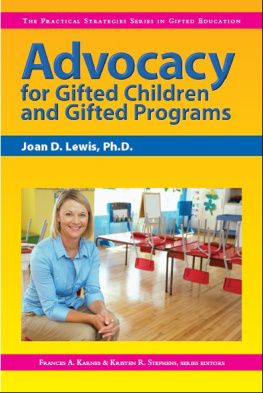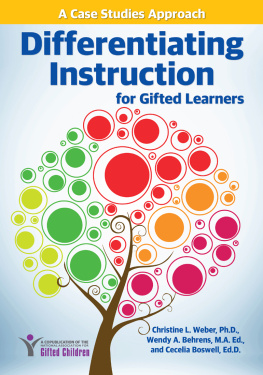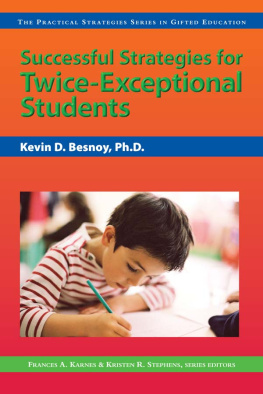Suzanne M. Bean - Developing Leadership Potential In Gifted Students
Here you can read online Suzanne M. Bean - Developing Leadership Potential In Gifted Students full text of the book (entire story) in english for free. Download pdf and epub, get meaning, cover and reviews about this ebook. year: 2009, publisher: Sourcebooks, Inc., genre: Business. Description of the work, (preface) as well as reviews are available. Best literature library LitArk.com created for fans of good reading and offers a wide selection of genres:
Romance novel
Science fiction
Adventure
Detective
Science
History
Home and family
Prose
Art
Politics
Computer
Non-fiction
Religion
Business
Children
Humor
Choose a favorite category and find really read worthwhile books. Enjoy immersion in the world of imagination, feel the emotions of the characters or learn something new for yourself, make an fascinating discovery.
- Book:Developing Leadership Potential In Gifted Students
- Author:
- Publisher:Sourcebooks, Inc.
- Genre:
- Year:2009
- Rating:5 / 5
- Favourites:Add to favourites
- Your mark:
Developing Leadership Potential In Gifted Students: summary, description and annotation
We offer to read an annotation, description, summary or preface (depends on what the author of the book "Developing Leadership Potential In Gifted Students" wrote himself). If you haven't found the necessary information about the book — write in the comments, we will try to find it.
Curriculum compacting allows learners to move successfully through the curriculum at their own pace. This book focuses on the nuts and bolts of this effective method for differentiating classroom content, process skills, and creative products of gifted learners.
In this concise introduction, Dr. Sally M. Reis and Joseph S. Renzulli discuss the research on curriculum compacting and the steps employed in implementing it in any classroom. Case studies of its effectiveness on schoolwide enrichment are also included.
This is one of the books in Prufrock Press popular Practical Strategies Series in Gifted Education. This series offers a unique collection of tightly focused books that provide a concise, practical introduction to important topics concerning the education of gifted children. The guides offer a perfect beginners introduction to key information about gifted and talented education.
Educational Resource
Suzanne M. Bean: author's other books
Who wrote Developing Leadership Potential In Gifted Students? Find out the surname, the name of the author of the book and a list of all author's works by series.















